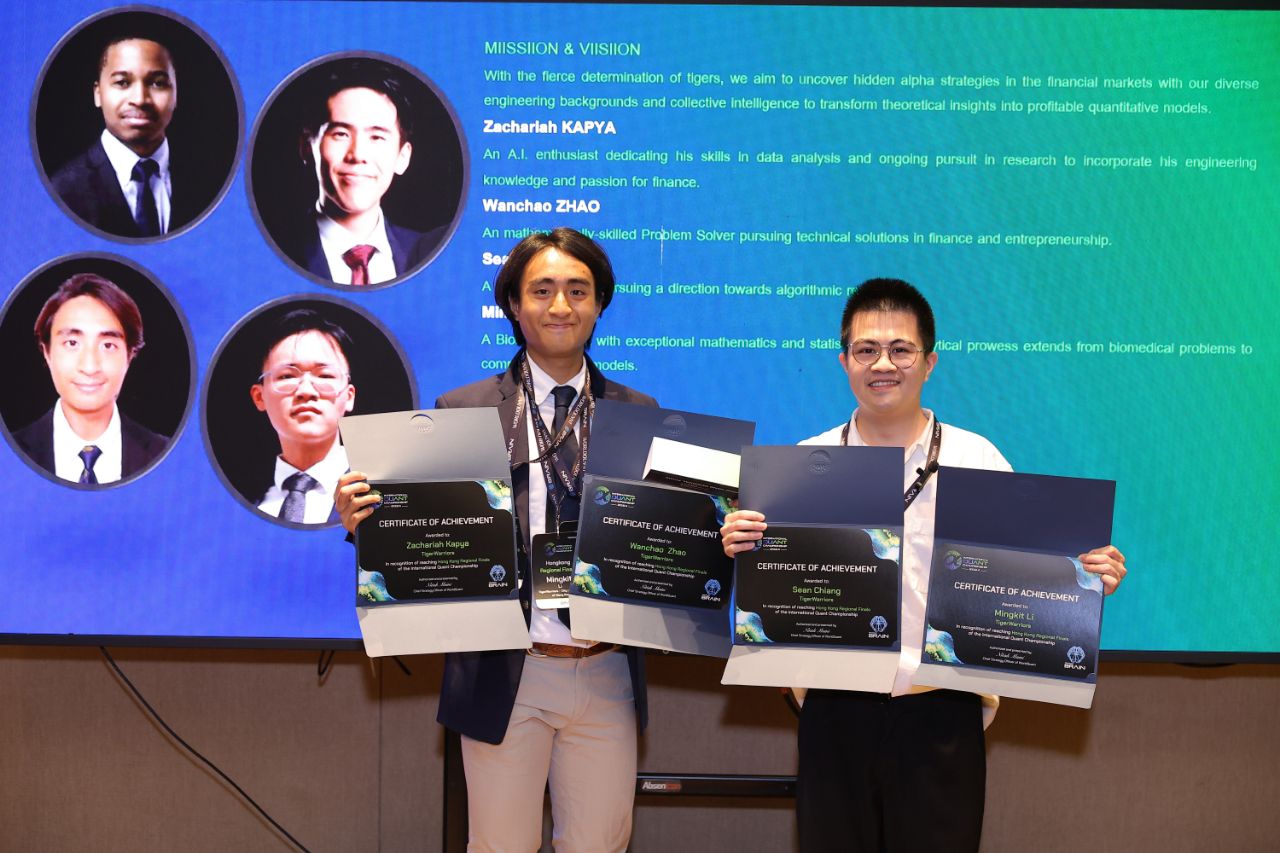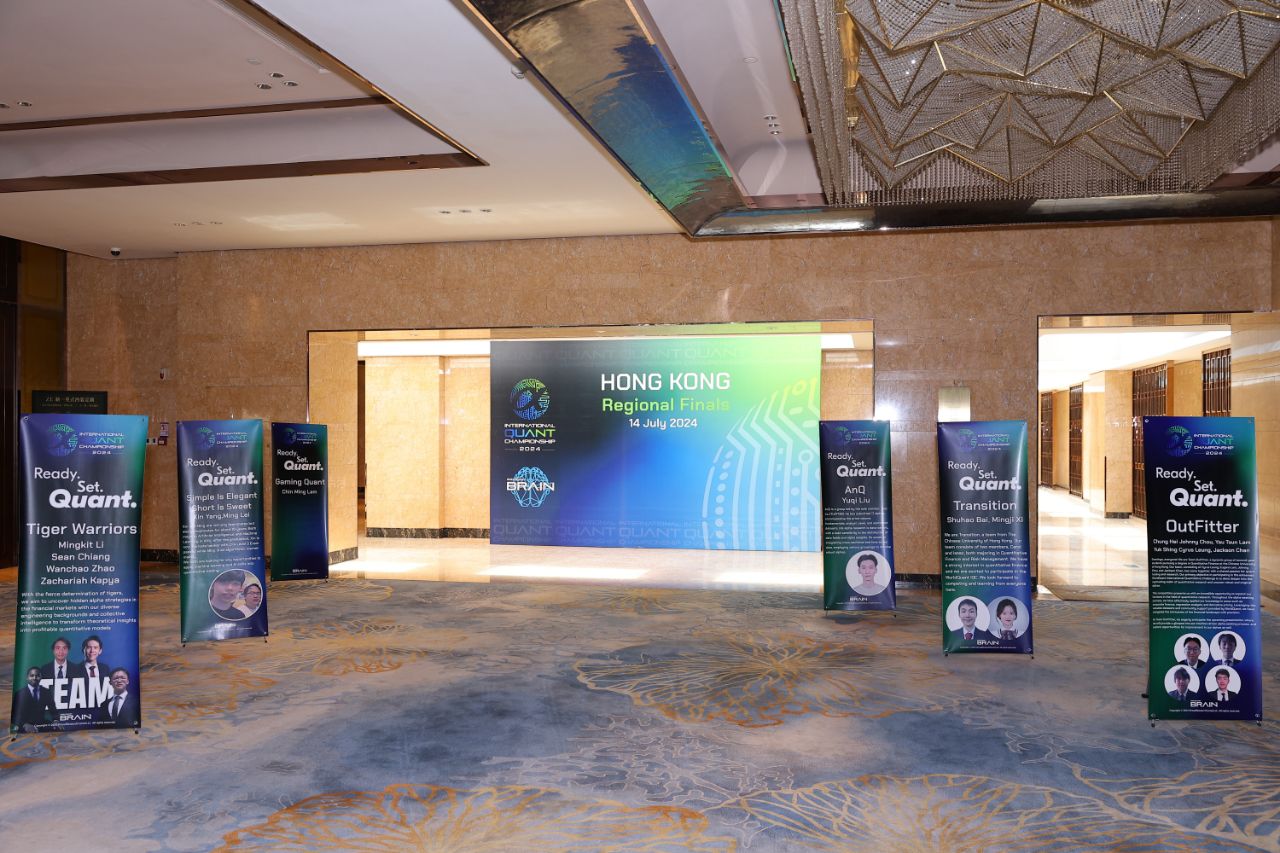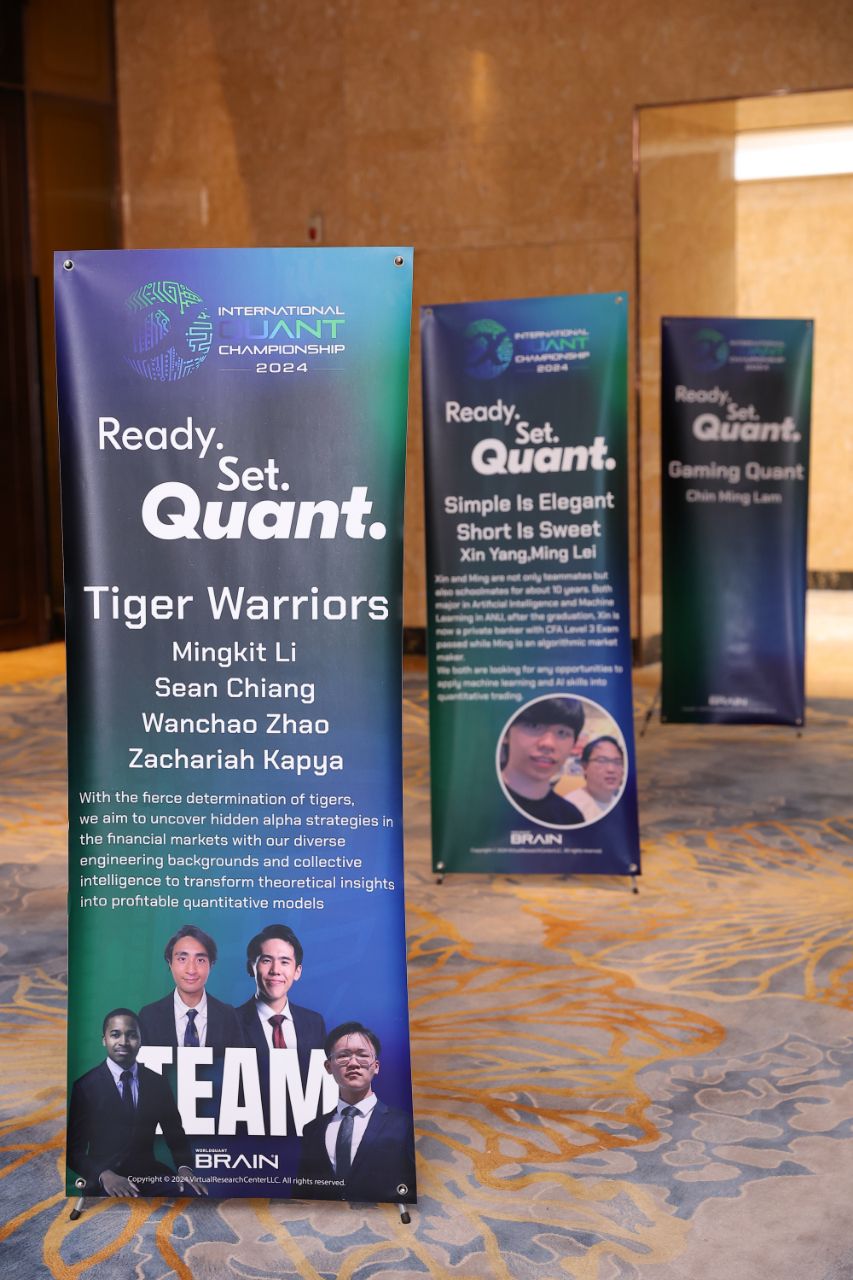Regional Finalist, World Top 10.08% - International Quant Championship 2024
 Global Semi-finalist
Global Semi-finalistInternational Quant Championship 2024
The International Quant Championship, organized by WorldQuant, is one of the most prestigious quantitative finance competitions globally, bringing together more than 37,000 participants from over 5,300 universities across 111 countries, competing for a share of the $400,000 prize pool and roles within the firm
Achievement
As team leader, I led our four-person team, getting into the 10/55 in Hong Kong in the 2nd round, advancing to the global semi-final round, placing in the top 10.08% among 4,304 participating teams worldwide. This achievement represents our effective quantitative research skills in a highly competitive environment.



Strategy Development
Our approach focused on three key alpha strategy developments:
Volatility-Bucketed Option Sentiment Analyzer: Developed a neutralization strategy based on the hypothesis of “Deviation of Call-Put Parity Brings Arbitrage Due to Market Efficiency”, resulted in 1.87 Sharpe ratio, 13.45% Return, 5.83% Drawdown.
The Balanced Bookworm Booster: Developed a statistical arbitrage strategy based on the hypothesis of “synergy of profitability and value factors captures complementary aspects of stock performance”, inspired by Novy-Marx (2013), who found that profitable firms generate significantly higher returns than unprofitable firms. Capturing factors of profitability metrics: Gross Profit / Assets (GPA) and R&D to Gross Profit ratio (RDGP), Value metrics: Book-to-Market ratio (BM).
Normalized Trend Strength Amplifier: Created Momentual strategies based on the hypothesis of “Companies demonstrating consistent growth in deferred revenue often outperform in terms of future revenue and earnings”, resulted in 2.01 Sharpe ratio, 13.94% Return, 3.90% turnover, 5.69% Drawdown.
Technical Implementation
Research Replication: Replicated and extended existing research findings in the field of quantitative finance, including the development of new strategies and the optimization of existing ones.
Backtesting: Implemented backtesting to evaluate the performance of the strategies in a simulated trading environment.
Optimization: Implemented algorithms for parameter optimization, reducing overfitting and enhancing strategy robustness
Impact & Learnings
This competition provided invaluable experience in developing and testing quantitative trading strategies in a realistic environment. Key takeaways included:
- Importance of feature engineering in financial machine learning models
- Techniques to avoid overfitting when working with financial time series
- Methods for effective backtesting and strategy validation
- Team coordination in high-pressure quantitative research
The skills developed during this competition directly translate to my current research focus on applying machine learning to discover investment opportunities and develop robust risk management strategies.